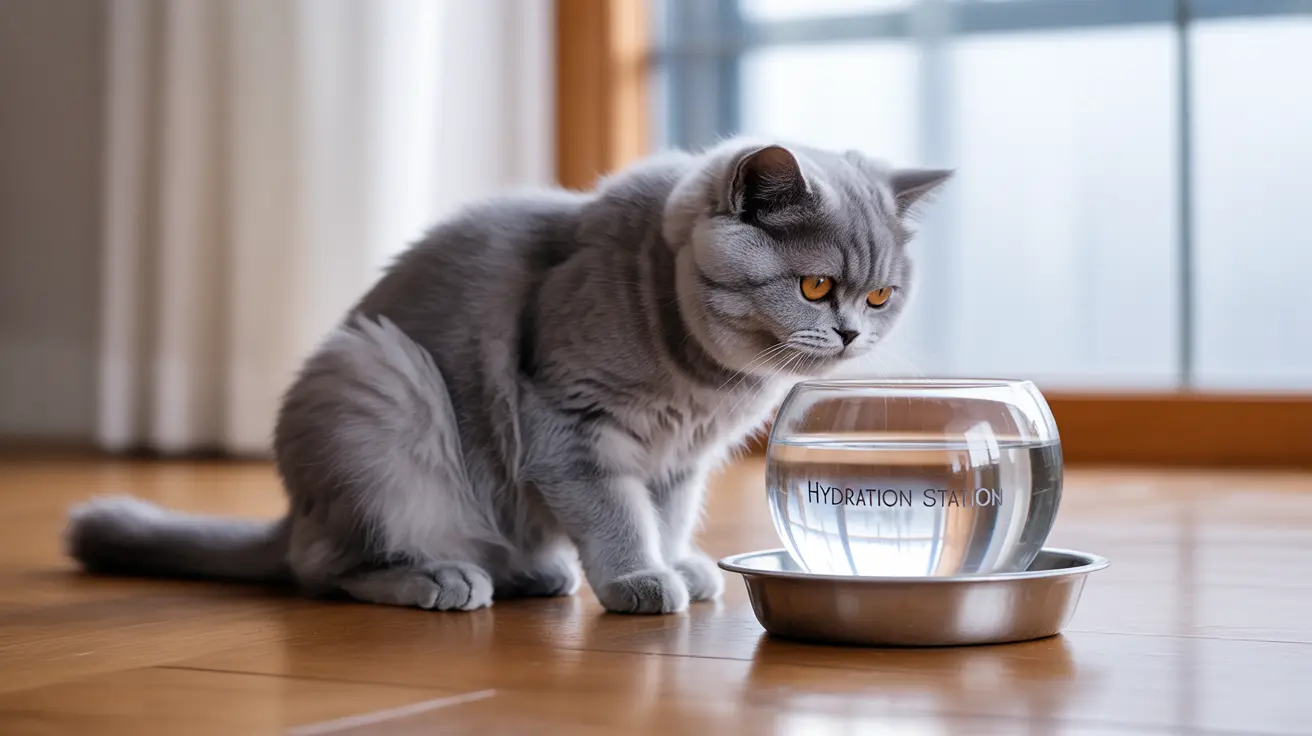Introduction
As pet owners increasingly explore health trends, many wonder "can cats drink alkaline water?" While alkaline water has gained popularity among humans for its supposed health benefits, its effects on cats require careful consideration. This comprehensive guide examines the safety, potential risks, and expert recommendations regarding alkaline water consumption for our feline companions.
Understanding how alkaline water might affect your cat's health is crucial, especially given cats' specific pH requirements and sensitive urinary systems. Let's explore what veterinary experts and scientific research tell us about this important topic.
Understanding Cat Hydration Needs and pH Balance
Cats have evolved with specific hydration requirements that differ significantly from humans. Their bodies are designed to thrive with slightly acidic water, typically with a pH between 6.2 and 6.4. This natural preference isn't arbitrary – it aligns perfectly with their biological needs and helps maintain optimal urinary health.
Regular tap water typically has a pH between 7.2 and 7.8, which is already more alkaline than ideal for cats. Alkaline water, with its even higher pH levels of 8.0-9.5, represents an even greater departure from cats' natural needs.
Potential Risks of Alkaline Water for Cats
Digestive System Impact
When cats consume alkaline water regularly, it can disrupt their digestive system's natural pH balance. The higher pH may interfere with proper digestion by neutralizing essential stomach acids, potentially leading to:
- Digestive discomfort
- Reduced nutrient absorption
- Nausea or vomiting
- Changes in appetite
Urinary Health Concerns
Perhaps the most significant risk involves urinary health. Cats are prone to various urinary issues, and maintaining proper urinary pH is crucial. Regular consumption of alkaline water may:
- Increase the risk of struvite crystal formation
- Disrupt natural urinary pH balance
- Potentially contribute to bladder stone development
- Complicate existing urinary tract conditions
Safe Water Options for Cats
Instead of alkaline water, consider these veterinarian-recommended alternatives:
- Filtered tap water (maintaining natural pH)
- Spring water
- Specialized cat water products formulated for optimal feline pH
- Fresh, clean water changed daily
When to Consult Your Veterinarian
Always consult your veterinarian before making changes to your cat's water source, especially if your cat:
- Has existing urinary tract issues
- Shows signs of digestive problems
- Takes regular medications
- Has kidney disease or other chronic conditions
Frequently Asked Questions
Can cats drink alkaline water, and is it safe for them?
While occasional consumption of alkaline water won't harm healthy cats, regular use isn't recommended. The high pH can disrupt their natural digestive and urinary systems.
What is the ideal pH of water for cats, and why is this important?
The ideal pH for cat water is between 6.2 and 6.4. This slightly acidic pH helps maintain proper urinary health and reduces the risk of crystal formation.
How does alkaline water affect a cat's digestive system and urinary health?
Alkaline water can neutralize necessary stomach acids and potentially increase urinary pH, leading to digestive issues and increased risk of urinary tract problems.
What are the best water options for cats prone to urinary tract issues?
Cats with urinary issues should drink water with a pH between 6.2-6.4. Filtered tap water or specialized cat water products are recommended options.
How can I safely introduce alkaline water to my cat, or should I avoid it altogether?
It's best to avoid alkaline water unless specifically recommended by your veterinarian. Instead, focus on providing fresh, clean water at the appropriate pH level.
Conclusion
While alkaline water isn't immediately dangerous for cats, it's not the optimal choice for their health. Focus instead on providing fresh, clean water at the appropriate pH level, and always consult with your veterinarian about the best hydration options for your specific cat's needs.






